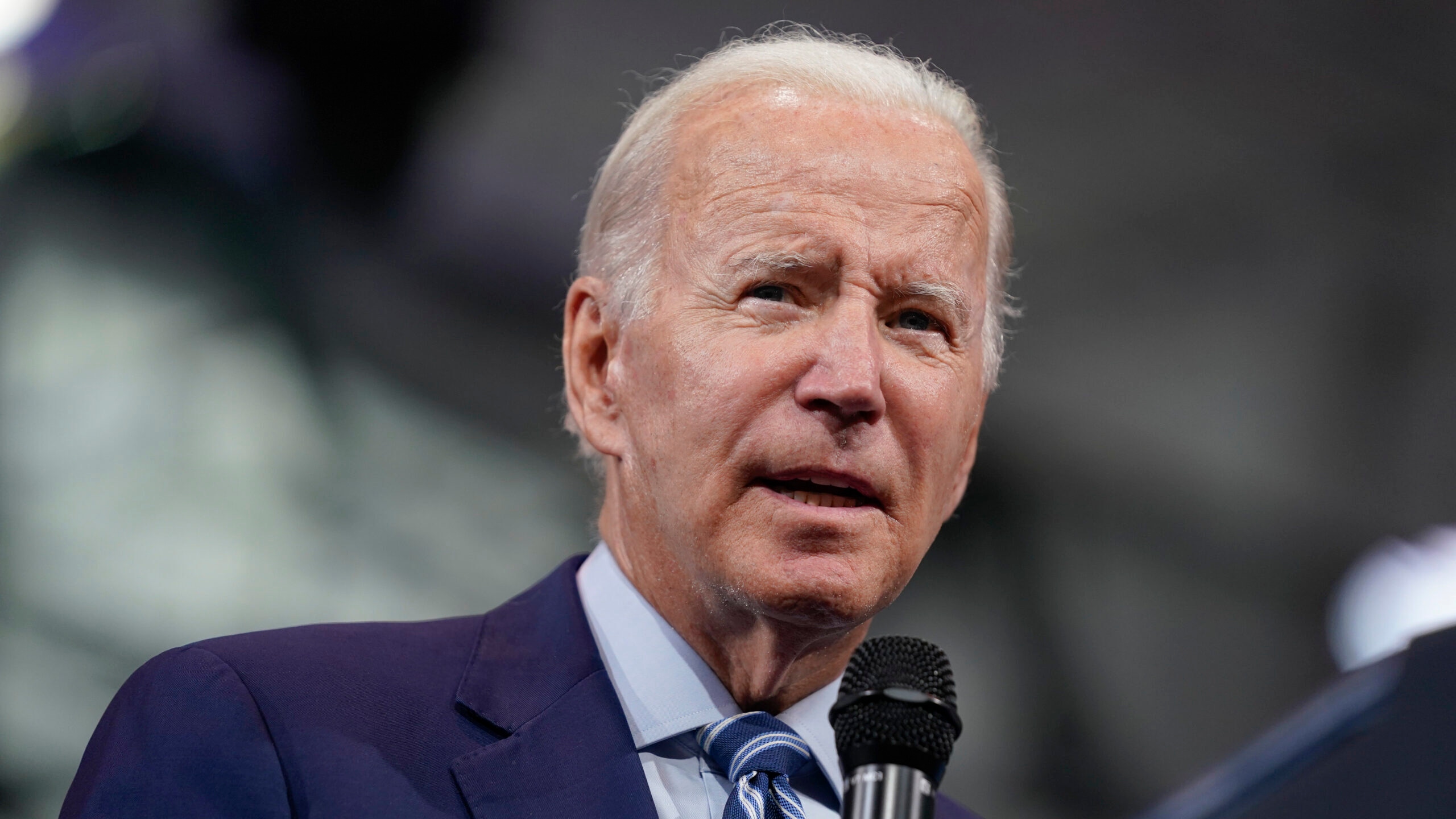3 Minnesotans, 2 Wisconsinites among the 39 Biden pardoned in biggest single-day act of clemency by a president

President Joe Biden speaks about gun violence and his crime prevention plans at Wilkes University, Tuesday, Aug. 30, 2022, in Wilkes-Barre, Pa. (AP Photo/Evan Vucci)
President Joe Biden is commuting the sentences of roughly 1,500 people who were released from prison and placed on home confinement during the coronavirus pandemic and is pardoning 39 Americans convicted of nonviolent crimes. It’s the largest single-day act of clemency in modern history.
Clemency is the term for the power the president has to pardon, in which a person is relieved of guilt and punishment, or to commute a sentence, which reduces or eliminates the punishment but doesn’t exonerate the wrongdoing. It’s customary for a president to grant mercy at the end of his term, using the power of the office to wipe away records or end prison terms.
Those pardoned Thursday had been convicted of nonviolent crimes such as drug offenses and turned their lives around, White House lawyers said.
Three Minnesota women and two Wisconsinites — one man and one woman — are among the 39 people pardoned.
38-year-old Kelsey Becklin of Falcon Heights, 49-year-old Sarah Carlson of Coon Rapids, and 51-year-old Lashawn Walker of Minneapolis were pardoned by Biden. Each had pleaded guilty to a non-violence offense that two of the women had committed in their 20s. Walker’s crime was a drug offense.
Becklin recently completed a Ph.D. program. She has also mentored other previously incarcerated people desiring higher education.
Carlson’s probationary sentence was terminated early. She has gone on to work in addiction counseling at a faith-based rehabilitation center and volunteers in the community and at her church.
Walker’s probationary sentence was also terminated early, the White House noting it was for exemplary probation record. She now works in healthcare and helps in the community.
In Wisconsin, 63-year-old Audrey Simone of Prescott and 70-year-old Jerry Manning of Sun Prairie were pardoned for their non-violence crimes. Manny, who had an early termination of his probationary sentence, is an Army veteran who was awarded a medal during Operation Desert Storm. He was honorably discharged.
Simone earned a bachelor’s degree and a counseling license and has worked in the addiction recovery field. She is also a deacon at her church, working in the prison ministry for the institution.
“America was built on the promise of possibility and second chances,” Biden said in a statement. “As president, I have the great privilege of extending mercy to people who have demonstrated remorse and rehabilitation, restoring opportunity for Americans to participate in daily life and contribute to their communities, and taking steps to remove sentencing disparities for non-violent offenders, especially those convicted of drug offenses.”
The commutations announced Thursday are for people who have served out home confinement sentences for at least one year after they were released. Prisons were uniquely bad for spreading COVID-19 and some inmates were released in part to stop the spread. At one point, 1 in 5 prisoners had COVID, according to a tally kept by The Associated Press.
Biden said he would be taking more steps in the weeks ahead and would continue to review clemency petitions. The second largest single-day act of clemency was by Barack Obama, with 330, shortly before leaving office in 2017.
The clemency follows a broad pardon for his son Hunter, who was prosecuted for gun and tax crimes. Biden is under pressure from advocacy groups to pardon broad swaths of people, including those on federal death row, before the Trump administration takes over in January. He’s also weighing whether to issue preemptive pardons to those who investigated Trump’s effort to overturn the results of the 2020 presidential election and are facing possible retribution when he takes office.
Before pardoning his son, Biden had repeatedly pledged not to do so. He said in a statement explaining his reversal that the prosecution had been poisoned by politics. The decision prompted criminal justice advocates and lawmakers to put additional public pressure on the administration to use that same power for everyday Americans. It wasn’t a very popular move; only about two in 10 Americans approved of his decision, according to a poll from The Associated Press-NORC Center for Public Affairs Research.
The president had previously issued 122 commutations and 21 other pardons. He’s also broadly pardoned those convicted of use and simple possession of marijuana on federal lands and in the District of Columbia, and pardoned former U.S. service members convicted of violating a now-repealed military ban on consensual gay sex.
The Associated Press contributed to this report.